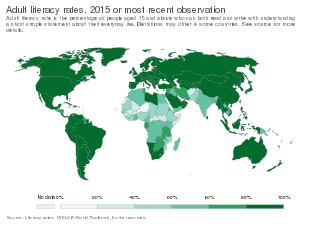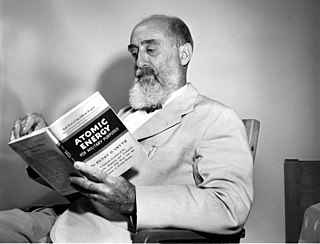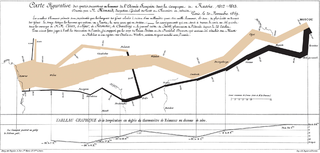
Literacy is popularly understood as an ability to read, write and use numeracy in at least one method of writing, an understanding reflected by mainstream dictionary and handbook definitions. Starting in the 1980s, however, literacy researchers have maintained that defining literacy as an ability apart from any actual event of reading and writing ignores the complex ways reading and writing always happen in a specific context and in tandem with the values associated with that context. The view that literacy always involves social and cultural elements is reflected in UNESCO's stipulation that literacy is an "ability to identify, understand, interpret, create, communicate and compute, using printed and written materials associated with varying contexts." Modern attention to literacy as a "context-dependent assemblage of social practices" reflects the understanding that individuals' reading and writing practices develop and change over the lifespan as their cultural, political, and historical contexts change. For example, in Scotland, literacy has been defined as: "The ability to read, write and use numeracy, to handle information, to express ideas and opinions, to make decisions and solve problems, as family members, workers, citizens and lifelong learners."

Whole language is a discredited philosophy of reading, particularly for teaching literacy in English. Its premise is that learning to read English comes naturally to humans, especially young children, in the same way that learning to speak develops naturally. The method became a major model for education in the US, Canada, New Zealand, and Great Britain in the 1980s and 1990s despite there being little scientific support for the method's effectiveness.
University College London, officially known as UCL since 2005, is a major public research university located in London, England. It is a member institution of the federal University of London, and is the largest university in the United Kingdom by total enrolment apart from the Open University, and the largest by postgraduate enrolment.
The Association of College & Research Libraries defines information literacy as a "set of integrated abilities encompassing the reflective discovery of information, the understanding of how information is produced and valued and the use of information in creating new knowledge and participating ethically in communities of learning".

The Free Library of Philadelphia is the public library system that serves the entire County of Philadelphia. It is the 13th-largest public library system in the United States. The Free Library of Philadelphia is a non-Mayoral agency of the City of Philadelphia governed by an independent Board of Trustees as per the Charter of the City of Philadelphia. The Free Library of Philadelphia Foundation is a separate 501c3 non-profit with its own board of directors and serves to support the mission of the Free Library of Philadelphia through philanthropic dollars.

Visual literacy is the ability to interpret, negotiate, and make meaning from information presented in the form of an image, extending the meaning of literacy, which commonly signifies interpretation of a written or printed text. Visual literacy is based on the idea that pictures can be "read" and that meaning can be through a process of reading.

Reading comprehension is the ability to process text, understand its meaning, and to integrate with what the reader already knows. Fundamental skills required in efficient reading comprehension are knowing meaning of words, ability to understand meaning of a word from discourse context, ability to follow organization of passage and to identify antecedents and references in it, ability to draw inferences from a passage about its contents, ability to identify the main thought of a passage, ability to answer questions answered in a passage, ability to recognize the literary devices or propositional structures used in a passage and determine its tone, to understand the situational mood conveyed for assertions, questioning, commanding, refraining etc. and finally ability to determine writer's purpose, intent and point of view, and draw inferences about the writer (discourse-semantics).

The Grant Museum of Zoology and Comparative Anatomy is a natural history museum that is part of University College London in London, England. It was established by Robert Edmond Grant in 1828 as a teaching collection of zoological specimens and material for dissection. It is one of the oldest natural history collections in the UK, and is the last remaining university natural history museum in London. Notable specimens and objects held by the museum include a rare quagga skeleton, thylacine specimens, dodo bones and Blaschka glass models.

A virtual museum is a digital entity that draws on the characteristics of a museum, in order to complement, enhance, or augment the museum experience through personalization, interactivity and richness of content. Virtual museums can perform as the digital footprint of a physical museum, or can act independently, while maintaining the authoritative status as bestowed by the International Council of Museums (ICOM) in its definition of a museum. In tandem with the ICOM mission of a physical museum, the virtual museum is also committed to public access; to both the knowledge systems imbedded in the collections and the systematic, and coherent organization of their display, as well as to their long-term preservation.

The visual language is a system of communication using visual elements. Speech as a means of communication cannot strictly be separated from the whole of human communicative activity which includes the visual and the term 'language' in relation to vision is an extension of its use to describe the perception, comprehension and production of visible signs.
Social practice is a theory within psychology that seeks to determine the link between practice and context within social situations. Emphasized as a commitment to change, social practice occurs in two forms: activity and inquiry. Most often applied within the context of human development, social practice involves knowledge production and the theorization and analysis of both institutional and intervention practices.
Digital literacy refers to an individual's ability to find, evaluate, and compose clear information through writing and other media on various digital platforms. Digital literacy is evaluated by an individual's grammar, composition, typing skills and ability to produce text, images, audio and designs using technology. The American Library Association (ALA) defines digital literacy as “the ability to use information and communication technologies to find, evaluate, create, and communicate information, requiring both cognitive and technical skills.” While digital literacy initially focused on digital skills and stand-alone computers, the advent of the internet and use of social media, has caused some of its focus to shift to mobile devices. Similar to other expanding definitions of literacy that recognize cultural and historical ways of making meaning, digital literacy does not replace traditional forms of literacy, and instead builds upon and expands the skills that form the foundation of traditional forms of literacy. Digital literacy should be considered to be a part of the path to knowledge.
Learning Through Art is an educational program of the Solomon R. Guggenheim Museum. LTA pairs practicing artists with participating public elementary school classrooms throughout the five buroughs of New York City. These resident artists spend one day a week for a period of 10 or 20 weeks working with classroom instructors to create and execute an art curriculum for the students that ties in with current Guggenheim exhibitions and supports the core curriculum learning inside of the classroom. Participating classrooms visit the Guggenheim multiple times throughout the duration of their program, and student artwork is shown in a culminating exhibition at the Guggenheim Museum in their annual A Year With Children showcase.
Visual literacy in education develops a student's visual literacy – their ability to comprehend, make meaning of, and communicate through visual means, usually in the form of images or multimedia.
The Troland Research Awards are an annual prize given by the United States National Academy of Sciences to two researchers under the age of 40 in recognition of psychological research on the relationship between consciousness and the physical world. The areas where these award funds are to be spent include but are not limited to areas of experimental psychology, the topics of sensation, perception, motivation, emotion, learning, memory, cognition, language, and action. The award preference is given to experimental work with a quantitative approach or experimental research seeking physiological explanations.

A natural history museum or museum of natural history is a scientific institution with natural history collections that include current and historical records of animals, plants, fungi, ecosystems, geology, paleontology, climatology, and more.

UBC School of Information is a graduate school at the University of British Columbia in Vancouver offering a Master of Archival Studies (MAS), a Master of Arts in Children's Literature (MACL), a Master of Library and Information Studies (MLIS), a DUAL Master of Archival Studies/Master of Library and Information Studies (MASLIS) and a Doctor of Philosophy in Library, Archival and Information Studies (Ph.D.). Founded in 1961 as the School of Librarianship, the iSchool is currently located in the Irving K. Barber Learning Centre. The school changed its name in 2018, but was previously known as the School of Library, Archival and Information Studies. UBC iSchool is an internationally ranked, multi-disciplinary school, ranked first in the world for graduate education in library and information management based on 2019 and 2020 QS ranking.
Multimodality is the application of multiple literacies within one medium. For example, understanding a televised weather forecast (medium) involves understanding spoken language, written language, weather specific language, geography, and symbols. Multiple literacies or "modes" contribute to an audience's understanding of a composition. Everything from the placement of images to the organization of the content to the method of delivery creates meaning. This is the result of a shift from isolated text being relied on as the primary source of communication, to the image being utilized more frequently in the digital age. Multimodality describes communication practices in terms of the textual, aural, linguistic, spatial, and visual resources used to compose messages.
Science capital is a conceptual tool for measuring an individual's exposure and knowledge of science. It can be used to help understanding how social class affects people's aspirations and involvement in science. The concept comes from research in education but is also used more broadly in practice and policy, for instance in the work of the Science and Technology Committee of the House of Commons in the UK.

Sarah (Sally) Lois Price is Professor of Physical Chemistry at University College London.









